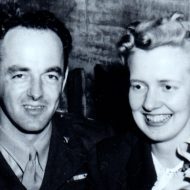One of the Easiest Things NOT to Do!
 It seems to me that there are two main groups of people who should be thinking about ‘medical decision-making’ in case something catastrophic happens.
It seems to me that there are two main groups of people who should be thinking about ‘medical decision-making’ in case something catastrophic happens.
But instead seem to be complacent about it or don’t want to hear about it. They often think “it can’t happen to me” and/or fear having to think about it.
GROUP #1 
* Aging parents or other seniors who are showing signs of problems such as: memory issues, driving difficulties, medical concerns
* Aging parents or other seniors who seem to be healthy (at least that is how it looks on the surface).
* But here’s the question: Are they prepared for ‘medical decision-making’ that may be/will be needed in the future?
GROUP #2
* Those who no longer have aging parents to care for.
* Those who may be retired, healthy, very active.
* Maybe their health is good now; but if conditions change, do their families know what they want done if they can’t speak for themselves?
 ONE OF THE EASIEST THINGS NOT TO DO:
ONE OF THE EASIEST THINGS NOT TO DO:
It is difficult to discuss issues that concern our mortality, but we know that our life will not last forever. Whether you think you fit in to either of the two groups above or not, the answer is still the same. We all need to discuss our wishes, and then fill out a Health Care Directive, (also known as a Living Will or Advance Directive).
If in the future you are unable to speak for yourself due to an extensive or devastating health condition, and can no longer direct your healthcare decisions, here are some questions to answer whether for you, your parents or other senior family members:
1. If I don’t talk about it now, who will know what type of care I want to occur if I’m dying and can’t speak for myself?
2. Do I want to put my spouse, children or other family members through the stress of making this major life and death decision when they will already be under so much emotional strain and pressure?
3. Do I want a healthcare provider that really doesn’t know me to make a decision to keep me alive no matter what? Do I want a “say” in what my quality of life will be?
THINGS TO DO:
* Let your family know what your wishes are in addition to getting the ‘Directive’ filled out. Discuss your wishes with your primary care physician. Too often in my experience, I’ve seen the emotional toll that family members face when someone they love is very ill or dying and doesn’t have a ‘Directive;” The family is left to make decisions on that loved one’s behalf.
* Health Care Directives can be downloaded from the Internet, (Caringinfo.com) as well as obtained from your insurance provider, attorney, doctor’s office or local hospital. Be aware that some documents are State-specific.
* Once your wishes are known and you have the Health Care Directive in place, make sure that copies are provided to your family, the person with power of Attorney, your doctors, hospital of choice and one kept in your Organizer notebook.
Think of a Health Care Directive as a GIFT to those you love. When circumstances don’t allow us to speak for ourselves with regard to medical decisions, the discussion we have had with those closest to us, along with a completed Directive itself, will provide the basis for decisions that need to be made on our behalf. That is truly a gift indeed!

“One of these days, is none of these days” English Proverb




